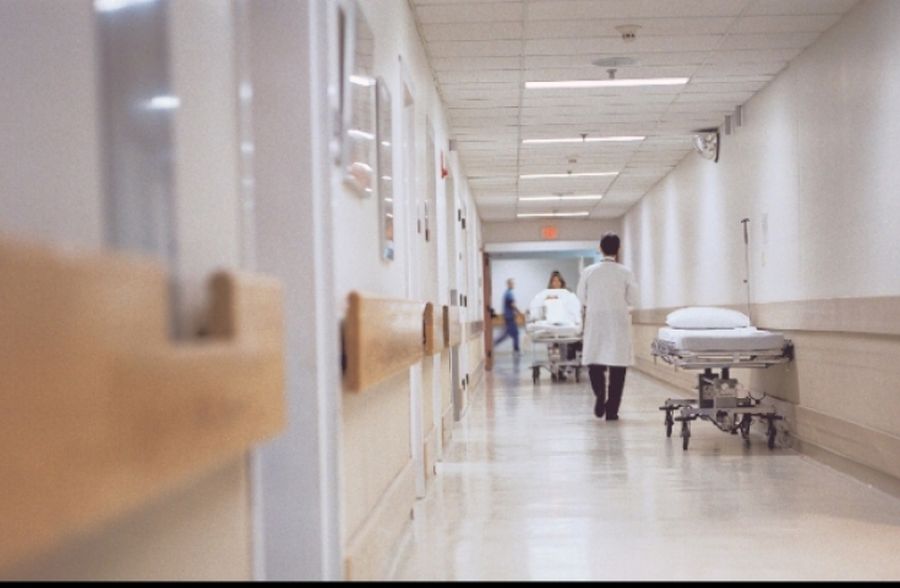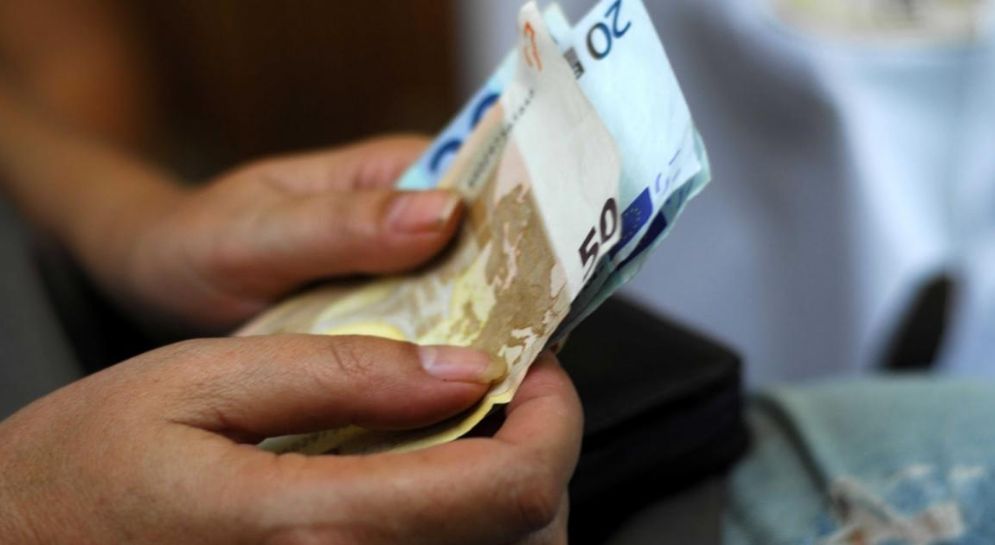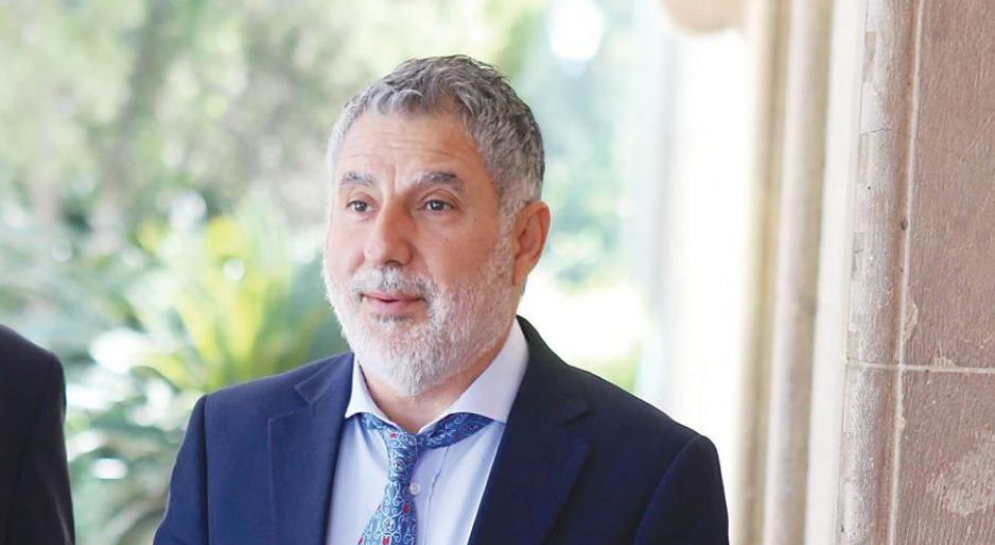
AKEL’s proposals for preventive measures in the Health sector
Statement by the General Secretary of AKEL A.Kyprianou
These measures must be taken to prevent the same problems
AKEL C.C. Press Office, 8th May 2020, Nicosia
Now that the situation is gradually on a path of normalisation, AKEL considers it necessary to put forth some thoughts and opinions on health issues, more specifically on public health.
First of all, on behalf of AKEL, I would like to express our sincere thanks to the medical, nursing and other staff working in the health sector (public and private). Without their selfless and tireless efforts, indeed putting their very lives in danger, it wouldn’t be possible to protect our compatriots and other citizens who had the misfortune to become infected with Covid-19. Their stance has refuted those forces and circles who in previous years were discrediting and depreciating them, those who were trying to defame them.
The coronavirus pandemic has highlighted the problems that have accumulated in the public health system in recent years due to the policies pursued by the Anastasiades-DISY Government. Despite AKEL’s warnings, the Government has unfortunately implemented policies that are being implemented by most of the right-wing Governments in the European Union. These policies are being imposed because of the decisions taken by the European Commission.
The crisis has highlighted the importance of central planning for public goods, universal rights and how much value these have to be put over profits.
At the same time as AKEL was stressing that public hospitals must constitute the backbone of the National Health Scheme (NHS), the policies being implemented by the Anastasiades-DISY Government had exactly the opposite effect. The sharp reduction in funding for the public health sector has led to the flight of medical staff, resulting in the serious understaffing of public hospitals.
Having experienced the pandemic and the many problems caused by the understaffing of public hospitals and other weaknesses that have been observed, we believe that it is necessary to take precautionary measures to prevent such problems from occurring again.
These measures must include the following:
- Upgrading of public hospitals
- Rapid expansion of the number of beds and the creation of new emergency clinics in every public hospital
- Their sufficient funding
- Adequate supply of equipment and consumables
- Full staffing according to agreed structure
- Improving working conditions in public hospitals
- Elaboration of attractive employment packages to appeal to medical staff.
More specifically, the State must ensure the following:
- The channeling of sufficient resources towards the health sector. Verbal support for the implementation of the second stage of the NHS isn’t enough. The announcement made to provide support of the health sector with 100 million Euros must be fully implemented. With these, the public health sector must be strengthened and get prepared to confront any new pandemic, but also the second stage of the implementation of the NHS.
- Unfortunately, the state health services organisation (OKYPY) did not manage to rise to the occasion in as far as dealing with the pandemic is concerned. On the contrary, it showed inadequacy, authoritarianism and negligence, causing enormous problems in public hospitals. It is imperative that the Government once again looks at the staffing of the Administrative Council, but also the question of adequately staffing the Organization so that it can cope. The criteria in both cases must be meritocratic.
- The rapid elaboration of a comprehensive action plan to address the pandemic by all health care providers with degrees of involvement of doctors/nurses/other services with the provision and plan for the best to the worst case scenario. Completion of plans and recording of all procedures in a manual for confronting similar disasters both at the Ministry level and at the level of each hospital.
- Record the needs in consumables, equipment and personnel for each possible scenario. Dealing with emergency/mass disasters
- Strengthening the operation of the Emergency Case Departments, training and development of staff.
- Exclusive connection of public hospital Emergency Departments with an ambulance service.
- Creation of Emergency Care Units in all hospitals and not only in the General Hospital of Nicosia. Increasing the beds of the Intensive Care Unit and the Increase Care Unit (> 10% of the beds in the hospitals of advanced countries) with the simultaneous recruitment of the necessary medical/nursing staff.
- Maintaining empty spaces – beds ready for any mass disasters
- Completion of the military hospital in the basement of the General Hospital of Nicosia.
- Speedy and immediate completion of the buildings at the Athalassa Mental Illness Hospital and the relocation of the psychiatric clinic in this area with the evacuation of the beds to the Nicosia General Hospital.
- Immediate creation of a level I trauma centre
- Creation of a wing for infectious diseases. At this stage, given the numerical capacity of beds, the spatial separation of hospitals in the Non-infectious Department and Infections Department must proceed immediately.
- Expansion or creation of new public hospitals
- Utilization of the military hospital in the BMH military camp
- Utilization of private hospitals and structures (requisition)
- Promote the cooperation of the public, private sector and general practitioners. The Government in a planned manner needs to ensure the support of the private sector and general practitioners of the NHS. Furthermore, the government should ensure for everyone the necessary supplies to meet the huge task they undertake.
- The voluntary integration of all doctors and nurses in the network to deal with any pandemics, contributing according to their expertise where necessary, either by staffing public health centres or private Intensive Care Units in case this is deemed necessary.
- The creation of a rehabilitation centre with the necessary number of beds so that hospital discharges can be referred on the same day.
- Creation of a Public Health and Infectious Diseases Laboratory.
- The Government must ensure that the appropriate conditions for staffing, hygiene and nutrition prevail in quarantine areas and the hospitality of healthcare workers.
- Continuous monitoring should be carried out for the strict implementation of circulars issued regarding the prohibition of entry to attendants-visitors.
- Precautionary measures for healthcare workers and professionals belonging to vulnerable groups. They should be relieved of their duties with full earnings as they are expected to be needed as reserves along the way. Excellent staff management is required. Provisions should also be in place for those personnel who have children and stay at home, as well as for those who will enter into quarantine or get sick and stay away from work.
- The organization of a strong network of purchases and supplies that will be able with the necessary computerization to proceed to the proper forecasting of needs, the timely ordering and supply of medical structures aiming at protecting staff.
- Management and utilization of all staff in other positions depending on the needs that arise. Make use of the entire medical community.
- The determination of a reference hospital for the exclusive treatment of confirmed cases is necessary after ensuring that all available means and resources are available both to treat the pandemic and to serve all health issues of citizens of a province.
- The management of the concept of the reacquisition of private hospitals or general practitioners as a tool of cooperation and proper organization with the ultimate goal of achieving the maximum benefit for society.
- Collectivity in decision making. There is no place for any unilateral decisions on the part of the Ministry of Health. Drawing on the expertise of health professionals in order to implement measures adapted to concrete Cypriot conditions must be the rule.
Our sole concern is people’s health. The current tragic situation reminds us that our society must be a society guided and based on solidarity. This situation strengthens AKEL’s timeless position that health cannot and must not be perceived as a commodity. Health and the right to life are non-negotiable and AKEL will continue to fight for them.




